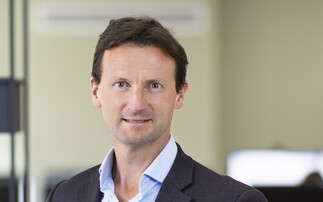Policy responses and new bond issuance driven by the global health crisis may set the trajectory of ESG (environmental, social, governance) markets for years to come.
Is this health crisis turned economic shock the ESG inflection point that markets needed? In this Q&A, Scott Mather, CIO U.S. Core Strategies and responsible for ESG strategies; Olivia Albrecht, head of ESG business strategy, and Jelle Brons, member of the ESG portfolio management team, discuss the outlook for ESG and PIMCO's approach to sustainable investing.
Q: In light of the covid-19 health crisis, what is the outlook for global sustainability in 2020 and beyond?
Albrecht: This pandemic is arguably the first sustainability crisis of the 21st century, and it's likely to help accelerate action among investors on long-term sustainability risks. For many of us, the profound events of 2020 have illuminated just how interconnected, interdependent, and vulnerable the world is to the potential challenges that climate change will bring.
So far this year we have seen oil supply shocks, a global pandemic, and now protests and demonstrations across the globe regarding social justice. Our hearts go out to our clients and colleagues around the world whose lives have been disrupted. COVID-19 is first and foremost a humanitarian crisis that is disproportionately affecting the world's poorest and most vulnerable. But it's also turned into an economic and sustainability crisis.
For nearly 50 years, our investment process at PIMCO has been dedicated to helping millions of investors pursue their objectives, regardless of the shifting market conditions, and our leadership in ESG investing is essential to our commitment to delivering on our clients' objectives while supporting long-term, sustainable economic growth globally. However, we need to do more as investors, issuers, asset owners, and asset managers to align efforts to bring cohesive change even sooner.
Q: How are bond markets evolving toward more sustainability?
Mather: Sustainability is tending to garner a greater share of mind in society and especially in the business and investment community - and we believe that is key to maximizing economic growth and resilience in the long term. A greater collective focus on sustainability may benefit investors in the near term in two key ways: first, more data and transparency. And second, growth in new financial instruments. We expect 2020 will be a busy year for innovation and new developments for investors.
PIMCO is actively involved in industry groups and policymaking circles that seek to innovate and develop new financial instruments. Due to our size, we are in a position to advise them on shaping market standards.
For example, to help drive this market innovation, PIMCO is co-chairing the UN Global Compact CFO Taskforce for the SDGs (Sustainable Development Goals). As a founding member of this two-year project, we aim to help mobilize hundreds of CFOs to tackle the financing needs around the SDGs while creating opportunities for impact-oriented investors. As a co-chair of the CFO Taskforce with Enel, we aim to use our expertise in bond markets to create sustainable bond issuance guidelines and norms that will help corporate finance become a meaningful force in closing the SDG financing gap.
Brons: This current crisis could serve as a springboard prompting more investors to look for more sustainable investment choices. We have seen growing issuance in COVID-19 bonds as well as SDG bonds and social bonds on top of a growing green bond market.
A word about risk: Investing in the bond market is subject to risks, including market, interest rate, issuer, credit, inflation risk, and liquidity risk. The value of most bonds and bond strategies are impacted by changes in interest rates. Bonds and bond strategies with longer durations tend to be more sensitive and volatile than those with shorter durations; bond prices generally fall as interest rates rise, and the current low interest rate environment increases this risk. Current reductions in bond counterparty capacity may contribute to decreased market liquidity and increased price volatility. Bond investments may be worth more or less than the original cost when redeemed. Investing in foreign denominated and/or domiciled securities may involve heightened risk due to currency fluctuations, and economic and political risks, which may be enhanced in emerging markets. Currency rates may fluctuate significantly over short periods of time and may reduce the returns of a portfolio. High-yield, lower-rated, securities involve greater risk than higher-rated securities; portfolios that invest in them may be subject to greater levels of credit and liquidity risk than portfolios that do not. Derivatives may involve certain costs and risks such as liquidity, interest rate, market, credit, management and the risk that a position could not be closed when most advantageous. Investing in derivatives could lose more than the amount invested.
The services and products described in this communication are only available to professional clients as defined in the Financial Conduct Authority's Handbook. This communication is not a public offer and individual investors should not rely on this document. Opinion and estimates offered constitute our judgment and are subject to change without notice, as are statements of financial market trends, which are based on current market conditions. We believe the information provided here is reliable, but do not warrant its accuracy or completeness
For investment professionals only. PIMCO Europe Ltd (Company No. 2604517) Ltd (Company No. 2604517) and PIMCO Europe Ltd - Italy (Company No. 07533910969) are authorised and regulated by the Financial Conduct Authority (12 Endeavour Square, London E20 1JN) in the UK. PIMCO Europe Ltd services are available only to professional clients as defined in the Financial Conduct Authority's Handbook and are not available to individual investors, who should not rely on this communication.









